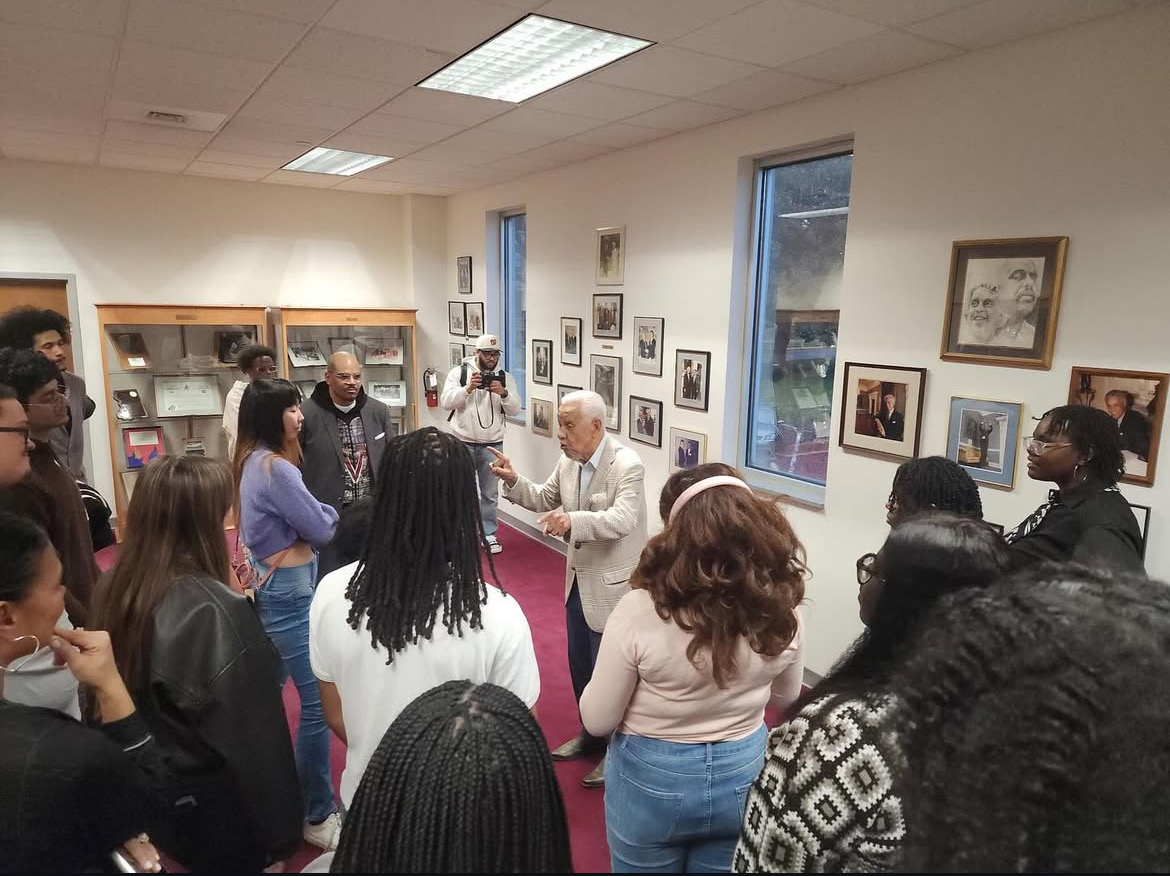I’m sure many of us would agree that this has been a great year for movies: “Barbie,” “Oppenheimer,” “My Big Fat Greek Wedding 3,” etc. but may I submit to you what I think is the best movie of 2023? “Bottoms.”
Yes, you read that right.
Yeah, no one is a stranger to the pink wave that took this summer by storm: “Barbie” dominated the global box office, grossing more than $1.427 billion. For reference, the highest-grossing movie in the DC universe — “Aquaman” (2018) — has only grossed $1.14 billion globally. Adjusting for inflation merely brings “Aquaman” to $1.402 billion in box offices; close, but not nearly on par with this summer’s hottest streak of pink. Yet Barbie is not a movie without fault, and its point of highest praise — entry-level feminism palatable to all — is simultaneously its largest critique.
This is where “Bottoms” come in. A queer twist on classic high school tropes, “Bottoms” is just a shitty, silly, slapstick movie. I mean, it’s basically the baby of “21 Jump Street” and every Adam Sandler movie ever, but with two lesbians as leads. The entire premise of the movie happens as a mistake, when two awkward queer high school girls pretend to start a fight club in order to avoid detention for accidentally running over a jock. After realizing they get to spend more time with hot girls, they quickly capitalize on the club’s community to try and hook up with two of the school’s hottest girls, played by Havana Rose Liu and Kaia Gerber.
Unfortunately, Liu is already dating the leading man, played by Nicholas Galitztine, who sheds his previous role as Prince Henry in “Red, White, and Royal Blue” to play a homophobic, himbo jock. Oh, and get this, the jock’s deathly allergy is pineapple. He’s literally allergic to fruitiness.
Also, if you haven’t seen “Red, White, and Royal Blue,” Galitztine basically plays a closested prince who falls in love with the president’s son — and yes, he is a bottom. The actors’ past work is actually the best part about this movie. Like yes, Ayo Edebiri is giving an incredibly complex performance in “The Bear” and could have been working on more mature performances, but why should she when she could work on “Bottoms”? No, it’s not going to attempt to teach you about the patriarchy, but it’s not meant to. Rather
than attempt to make feminism palatable for a larger audience, “Bottoms” knows its target audience and hits the mark.
Don’t get me wrong, I love the pinks, childhood nostalgia and witty jokes in Barbie. The scene of Gosling Ken and Liu Ken beaching it out had me in stitches, but sometimes I wish there was more. The liberating speech that Gloria delivers as a wake-up call to all the Barbies under Ken’s newly instituted patriarchy has neither shock value nor much impact due to its frequent, almost mechanical repetitiveness. While such a statement of feminism deconstructs the absurdity of expectations placed on women and suggests a common female experience, it also shows how easily words become empty slogans. The scene is highly choreographed, with each Barbie whisked away to hear the “It is literally impossible to be a woman” speech as if reading a banned book, and upon hearing it, instantly snaps out of their trance. As arbitrary as it is for a doll who has never stepped out of Barbieland to be enlightened by feminist ideas based in the real world, the narrative oversimplifies the female experience and the nuances of feminism, disregarding the complexity of individual experiences and problems in favor of empowerment through underbaked cookie-cutter arguments.
How does one expect to subvert gender stereotypes and inspire individuality, which itself is deeply complex and nuanced, through arguments which themselves are surface-level slogans? The patriarchy and its complexities are reduced to a crumbling absurd mess of horses and trucks and statements of feminism that remain relatively shallow, like Greta Gerwig’s small jabs toward Mattel’s ventures to make an “Ordinary Barbie” upon hearing its potential to “Make money.” Female agency becomes a means to an end, entertaining profitable numbers and becoming replicable templates of words. Entry-level feminism quickly gets old, with bits and pieces of witty comments scattered around like incomplete pieces of a puzzle.
On the other hand, “Bottoms” highlights exactly how much it sucks to be a queer teenage girl. Making fun of the objectification of women through a queer lens, high school tropes are reinforced and mocked to the extreme. The girls are cheerleaders, of course, referencing to the queer cult classic “But I’m A Cheerleader,” and girlhood is a bittersweet best friend to our two main characters. They don’t chant songs and celebrate girlhood, but they quite literally fight for each other. And all of their problems are objectively trivial; it’s fantastic. That’s the reason it works so well: because it’s so absurd. It’s camp. It’s the fresh breath in all the noise that is serious films that try to convey queerness as a far away magical, fantasy experience. Yet at the same time, it’s the realest thing I’ve ever watched. I mean, why have we as a society not touched on the inherent gayness of contact sports before?! Plus, queer girls growing up need the harsh reality that not all gay people are hot.
While it may not be massively known like Barbie, it’s a huge step towards having queer representation in media where queerness isn’t mystified, it’s normal and awkward as is every other aspect of teenage girlhood. So, if you’re queer, a fan of Michael Cera, and looking for a simple laugh, check out “Bottoms” in theaters (maybe).












